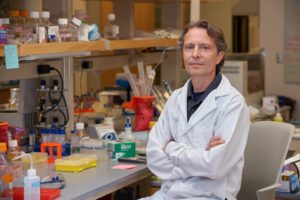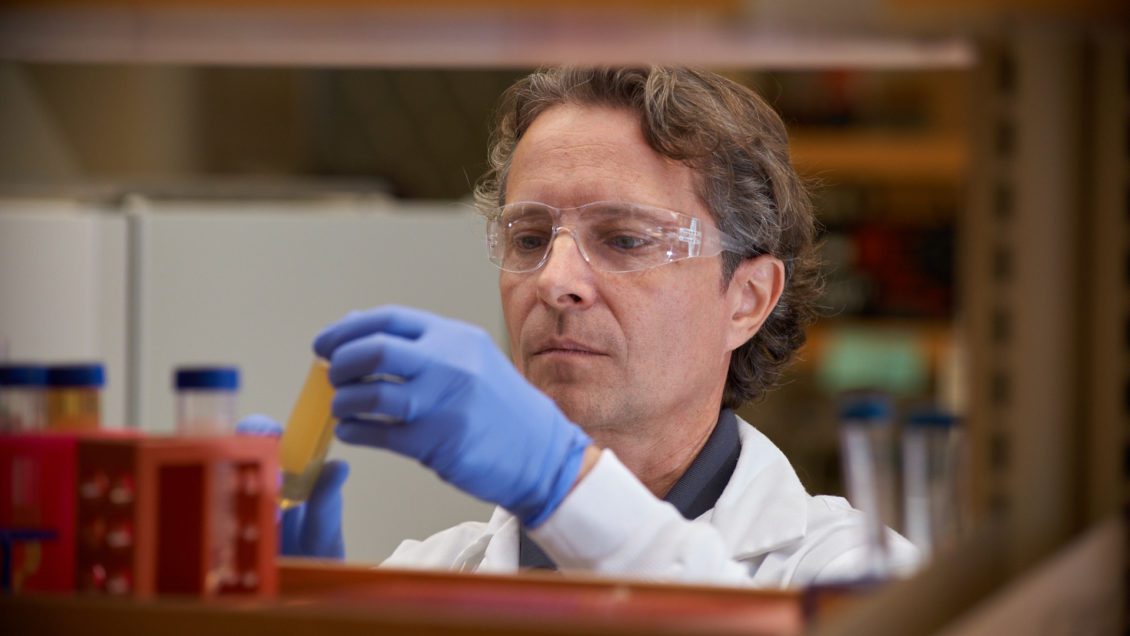Clemson University scientist Lukasz Kozubowski has received a five-year, $1.9 million grant for his research into finding safer and more effective drugs that target fungal infections, which can be dangerous and even deadly, especially for immunocompromised people such as transplant recipients and those with HIV/AIDS.
Concerns are rising globally about the need for drugs that can safely treat fungi such as Cryptococcus neoformans, which can attack the brain as cryptococcal meningitis, said Kozubowski, an associate professor in the College of Science’s Department of Genetics and Biochemistry.

“Recently, the World Health Organization issued a statement emphasizing how threatening fungal diseases are to humankind,” Kozubowski said. “They have to be taken seriously because they are a threat to the human population. Cryptococcus neoformans is on the top of the list of those.”
According to the Centers for Disease Control and Prevention, Cryptococcus neoformans is present in the environment worldwide. People can become infected with C. neoformans by inhaling the microscopic fungus. Most people never get sick. Cases of infection occur mostly in people who have weakened immune systems, particularly those who have advanced HIV/AIDS, according to the CDC.
Current drug therapies for Cryptococcus act by either killing the fungus or inhibiting fungal growth. The latter is a safer treatment because the more toxic the drug, the more it can endanger human patients.
Treating fungal diseases is much more challenging than treating bacterial diseases…because fungi are eukaryotic just like we are. Finding a drug that would be very selective and kill or inhibit the fungi — but not humans — is difficult because they have so much in common with us. Whatever kills them may be very toxic to humans as well.
Lukasz Kozubowski, associate professor in the department of genetics and biochemistry
Eukaryotes are single-celled or multicellular organisms whose cells contain a distinct, membrane-bound nucleus.
In the project funded by the National Institute of Allergy and Infectious Diseases, Kozubowski is examining how the fungus adapts and survives in the environment of the human body, specifically the temperature.
“Temperature is a big deal because (C. neoformans is) typically not subjected to the temperature of humans,” Kozubowski said. “When you think of fungi, it’s a very, very small percentage of all species in the environment that can survive in the human body. That is good because otherwise, we would be threatened by even more infections.”
What is the role of septins?
Kozubowski’s research focuses on a specific group of proteins called septins and their role in allowing that fungus to survive in the human body.
“Septins are a very interesting group of proteins,” he explained. “They have been implicated in things like cancer and some neurological diseases in humans. But how they contribute to those diseases is not very clear.
“We think that not only septins are involved, but a multitude of other proteins that come together as a pathway that septins participate in to deal with this high temperature of the host that the fungus faces when it enters the human body,” he continued. “So, we are trying to explain how the septins respond to stress from temperature, not necessarily thinking that the septins themselves will be a target for drug therapies.”
The research could pave the way to finding new treatment options that are safer and more effective than those currently available.
“Once we figure out the mechanism — how it survives the human body temperature — we can think of some pharmacological interventions by interrupting those pathways to treat Cryptococcus because if it cannot survive the human body’s temperature, it will not cause infections.”
The College of Science pursues excellence in scientific discovery, learning, and engagement that is both locally relevant and globally impactful. The life, physical and mathematical sciences converge to tackle some of tomorrow’s scientific challenges, and our faculty are preparing the next generation of leading scientists. The College of Science offers high-impact transformational experiences such as research, internships and study abroad to help prepare our graduates for top industries, graduate programs and health professions. clemson.edu/science
Get in touch and we will connect you with the author or another expert.
Or email us at news@clemson.edu

